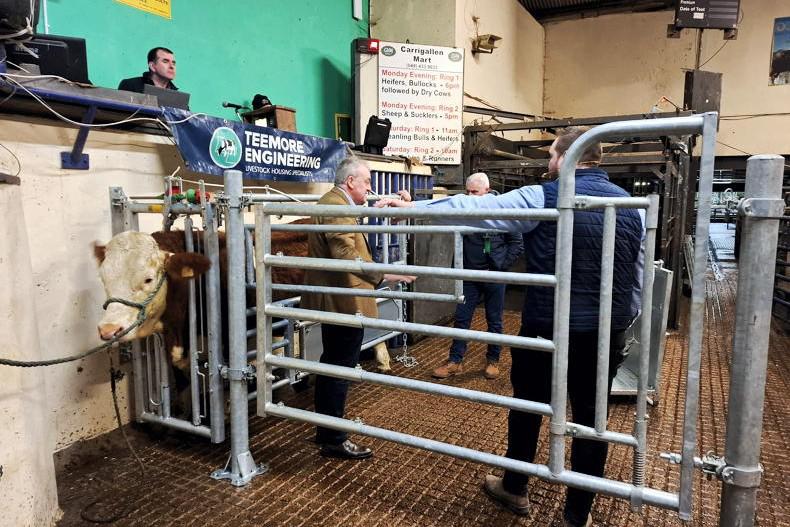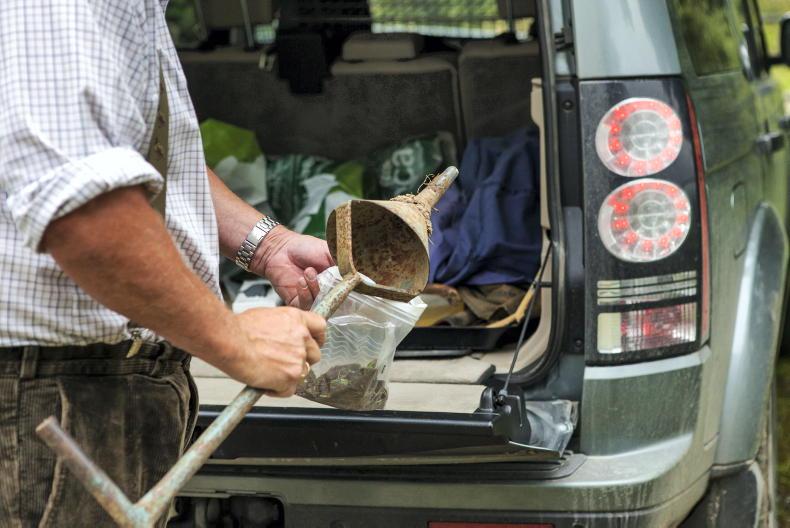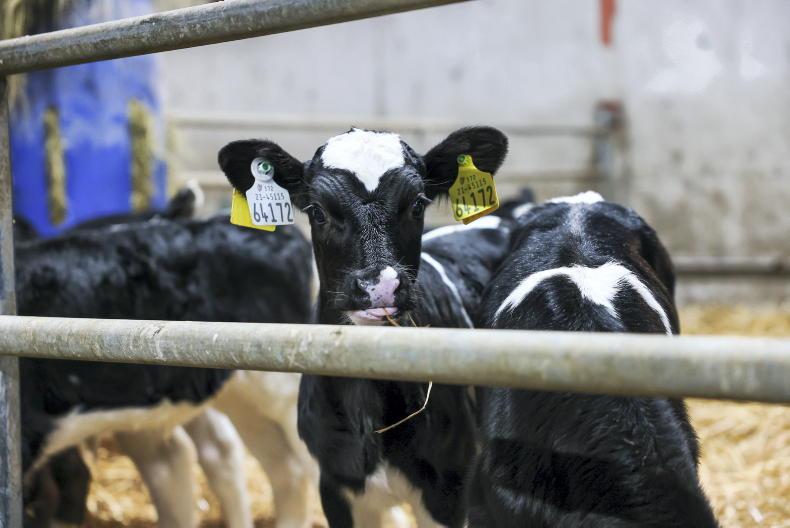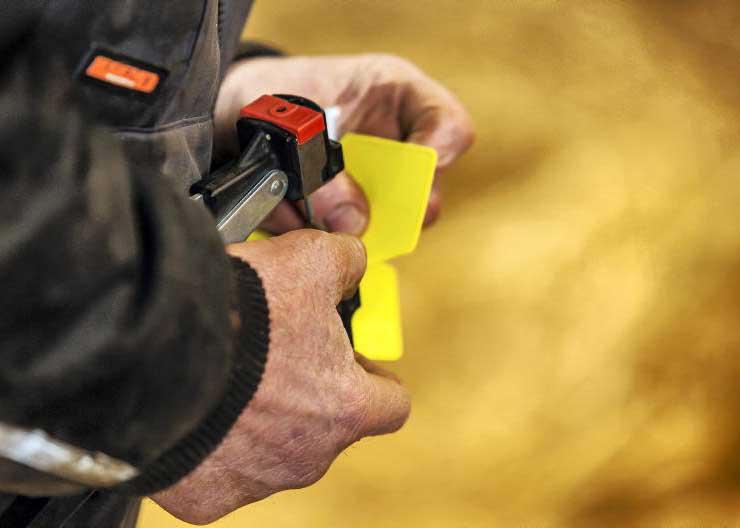Ireland is close to eradicating Bovine Viral Diarrhoea (BVD) from the national cattle herd.
This was the view delivered by Minister for Agriculture Charlie McConalogue in a recent statement announcing his Department’s continued financial and legislative support of the BVD National Eradication Programme.
Minister McConalogue said: “The programme is at a crucial point and we are close to eradicating BVD from the herd. The opportunity to achieve BVD freedom is in sight. It is key that everyone plays their role to see this through. Excellent progress has been made over the past number of years and we have intensified our efforts to ensure success.”
2022 framework
The minister outlined that automatic herd restrictions and notification of neighbouring holdings will continue in 2022. Herd restrictions will apply from one day following the date of the initial BVD positive or inconclusive test.
There will also be no confirmatory testing on ear-notch (tissue sample) positive samples conducted under the programme in 2022, which means that animals that record a positive reading on their tissue tag test will not have an option to be retested.
The BVD financial supports programme funded by the Department of Agriculture encourages swift removal of BVD test positive animals by offering higher payments for swift removal.
The financial supports available are as follows:
Dairy herds
€160 if female dairy and dairy cross animals are removed within 10 days of the first positive or inconclusive test result.€30 if female dairy and dairy cross animals are removed between day 11 and 21 of the first positive or inconclusive test result.€30 towards the disposal of dairy bull calves through the abattoir or knackery within 14 days of the first positive or inconclusive test result.Beef herds
€220 if the animal is removed within 10 days of the first positive or inconclusive test result.€30 if the animal is removed between day 11 and 21 of the first positive or inconclusive test result.Herd investigations
The Targeted Advisory Service on Animal Health (TASAH) herd investigations following the disclosure of a BVD test positive or inconclusive animal will also remain in place.
This will comprise of a mandatory herd epidemiological investigation funded by the Department. The Department will also fund a whole herd BVD test and vaccination against BVD for all eligible females in these herds in 2022 and 2023.
This will be undertaken by a private veterinary practitioner nominated by each herd.
EU legislation
The Department explains that the changes taken in 2021 and 2022 reflect new EU animal health legislation, with these changes required to achieve official recognition of the programme at EU level.
To secure BVD-free status under the EU Animal Health law, Ireland must achieve an 18-month period without the disclosure of a confirmed BVD persistently infected (PI) animal, with 99.8% of cattle herds BVD free accounting for 99.9% of the bovine population.
Achieving BVD free status is a vital step in concluding the requirement for mandatory tissue tagging and BVD testing of all newborn animals.
Minster McConalogue said he is satisfied with the progress being made towards the eradication of BVD.
“The work of the BVD Implementation Group continues to review progress and consider whether any further additional measures may be needed to bring the BVD Eradication Programme to as speedy a conclusion as possible,” he said.
The results of the 2021 programme up to week 50 are detailed in Table 1.
The hope is that the changes introduced in 2021 will bring further reductions in the number of test positive animals in 2022.
Ireland is close to eradicating Bovine Viral Diarrhoea (BVD) from the national cattle herd.
This was the view delivered by Minister for Agriculture Charlie McConalogue in a recent statement announcing his Department’s continued financial and legislative support of the BVD National Eradication Programme.
Minister McConalogue said: “The programme is at a crucial point and we are close to eradicating BVD from the herd. The opportunity to achieve BVD freedom is in sight. It is key that everyone plays their role to see this through. Excellent progress has been made over the past number of years and we have intensified our efforts to ensure success.”
2022 framework
The minister outlined that automatic herd restrictions and notification of neighbouring holdings will continue in 2022. Herd restrictions will apply from one day following the date of the initial BVD positive or inconclusive test.
There will also be no confirmatory testing on ear-notch (tissue sample) positive samples conducted under the programme in 2022, which means that animals that record a positive reading on their tissue tag test will not have an option to be retested.
The BVD financial supports programme funded by the Department of Agriculture encourages swift removal of BVD test positive animals by offering higher payments for swift removal.
The financial supports available are as follows:
Dairy herds
€160 if female dairy and dairy cross animals are removed within 10 days of the first positive or inconclusive test result.€30 if female dairy and dairy cross animals are removed between day 11 and 21 of the first positive or inconclusive test result.€30 towards the disposal of dairy bull calves through the abattoir or knackery within 14 days of the first positive or inconclusive test result.Beef herds
€220 if the animal is removed within 10 days of the first positive or inconclusive test result.€30 if the animal is removed between day 11 and 21 of the first positive or inconclusive test result.Herd investigations
The Targeted Advisory Service on Animal Health (TASAH) herd investigations following the disclosure of a BVD test positive or inconclusive animal will also remain in place.
This will comprise of a mandatory herd epidemiological investigation funded by the Department. The Department will also fund a whole herd BVD test and vaccination against BVD for all eligible females in these herds in 2022 and 2023.
This will be undertaken by a private veterinary practitioner nominated by each herd.
EU legislation
The Department explains that the changes taken in 2021 and 2022 reflect new EU animal health legislation, with these changes required to achieve official recognition of the programme at EU level.
To secure BVD-free status under the EU Animal Health law, Ireland must achieve an 18-month period without the disclosure of a confirmed BVD persistently infected (PI) animal, with 99.8% of cattle herds BVD free accounting for 99.9% of the bovine population.
Achieving BVD free status is a vital step in concluding the requirement for mandatory tissue tagging and BVD testing of all newborn animals.
Minster McConalogue said he is satisfied with the progress being made towards the eradication of BVD.
“The work of the BVD Implementation Group continues to review progress and consider whether any further additional measures may be needed to bring the BVD Eradication Programme to as speedy a conclusion as possible,” he said.
The results of the 2021 programme up to week 50 are detailed in Table 1.
The hope is that the changes introduced in 2021 will bring further reductions in the number of test positive animals in 2022.









SHARING OPTIONS